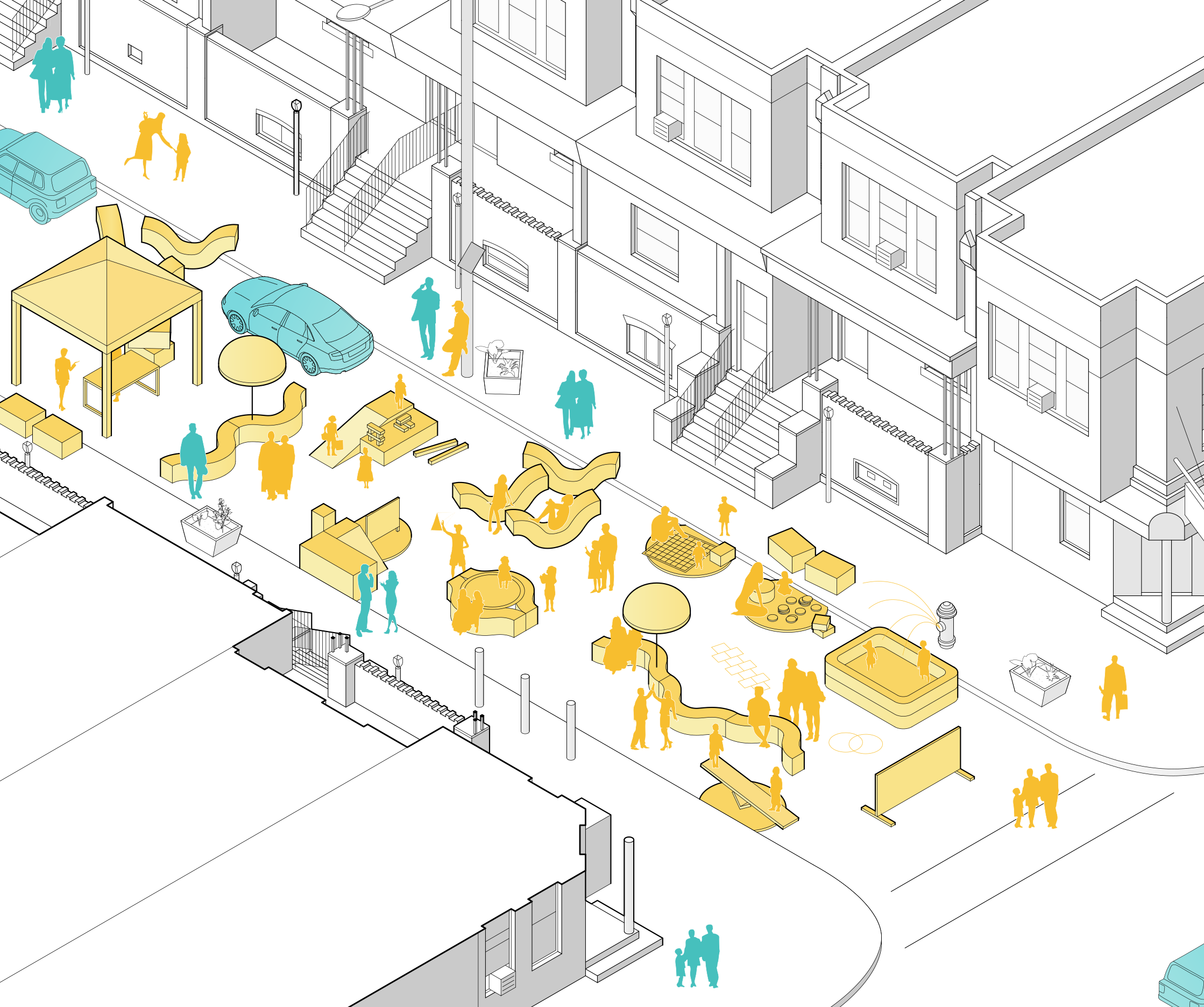
PUBLIC STREET WITH TEMPORARY PLAYGROUND
PLAYSTREETS PUBLIC SPACE PROGRAM
Philadelphia, Pennsylvania
1970s–
Philadelphia Parks and Recreation
Piggybacking Tactic
Share a Resource to Multiply Use
PHILADELPHIA PLAYSTREETS is a space-sharing piggybacking that extends the benefits of the street as a publicly owned asset. For more than fifty years, Philadelphia’s Parks and Recreation department has worked closely with local communities to convert small, one-way streets into temporary summertime playscapes. At more than three hundred sites on summer weekdays from 10 a.m. to 4 p.m., designated neighborhood supervisors set up barricades to restrict vehicle access while the Parks and Recreation department delivers portable furniture, play equipment, and other supplies to areas of the city that are critically underserved by formal parks, playgrounds, and other public open spaces. As part of Playstreets, a summer-meals program provides free lunches and snacks to children in need. In these ways, the Playstreets program cleverly leverages existing spaces and funding streams to close crucial gaps in public service. Ultimately, the program’s longstanding success is due to its being largely a grassroots community-driven effort. As such, the Playstreets program is an important case study for meaningful cooperation between communities and institutions that effectively pairs local knowledge with public resources.


